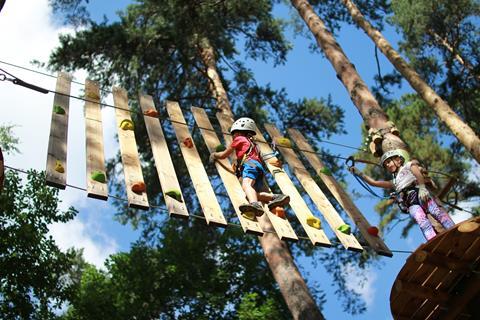Teacher John Dabell shares his thoughts on why every school should appoint an Educational Visits Coordinator (EVC) and what their role is.
Every school should appoint an Educational Visits Co-ordinator to take responsibility for all learning outside the classroom opportunities and to support their colleagues planning and managing off-site visits.
The EVC is a key post because it involves shaping high quality provision and ensuring children receive a range of activities to learn in the real-world and experience adventure.
It’s a dynamic, hands-on position that makes a huge contribution to the personal development of all pupils and the health and wellbeing of the school community. This is about making a positive impact on people’s lives, widening horizons and developing their social and emotional intelligence so an EVC adds considerable value to the whole school.
“The EVC is a school’s nucleus for planning, leading, monitoring and evaluating visits and ensuring all children can access a rich and rounded set of experiences.”
The EVC job straddles the whole curriculum and raises achievement by supporting subject areas throughout the school. One of its key functions is to champion all aspects of visits and outdoor learning so that there are engaging, relevant, enjoyable and memorable learning opportunities beyond the classroom for every pupil.
An EVC is both conductor and musician playing many instruments and the roles and responsibilities are wide-ranging requiring a Swiss-Army knife skills set although the competence required will vary according to school size and activities proposed.

Responsibilities will range from having policies and procedures in place, ensuring water-tight audit trails, understanding risk management, leading trips, assessing outcomes and monitoring systems, activities and practicalities.
Anyone appointed as an EVC will normally have training and practical leadership experience over a number of years. However, even if you are an experienced EVC then there is always plenty to know in terms of health and safety, planning, management, mentoring and steering, advising and guiding the working practices of colleagues. Keeping skills updated is essential so that learning and professional development is never off the radar and further training needs can be clearly identified.
The ‘go to’ place for support is the Outdoor Education Advisers’ Panel (OEAP) which produces freely available National Guidance, an online resource for the management of outdoor learning, off-site visits and learning outside the classroom. These include documents relating to the ‘basics’, good practice, legal framework and employer systems, policies, checklists and model forms.
Everything you need to do your job effectively can be found at the OEAP and guidance is constantly updated and amended so you can be sure you are keeping abreast, connected and in the know to lead with the kinetic energy the role demands. The OEAP recommend engaging an Accredited Member of OEAP who can provide high quality advice and training.










